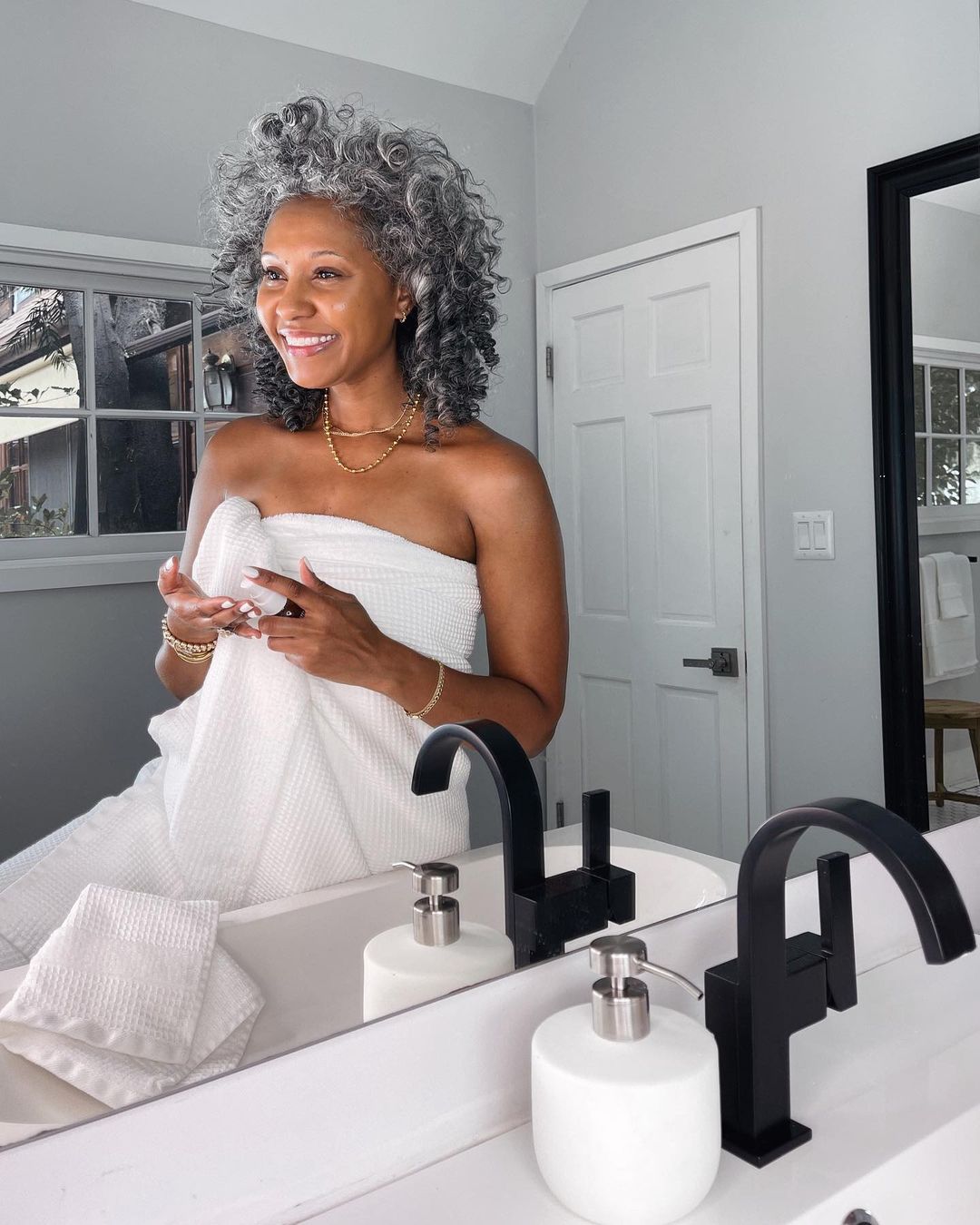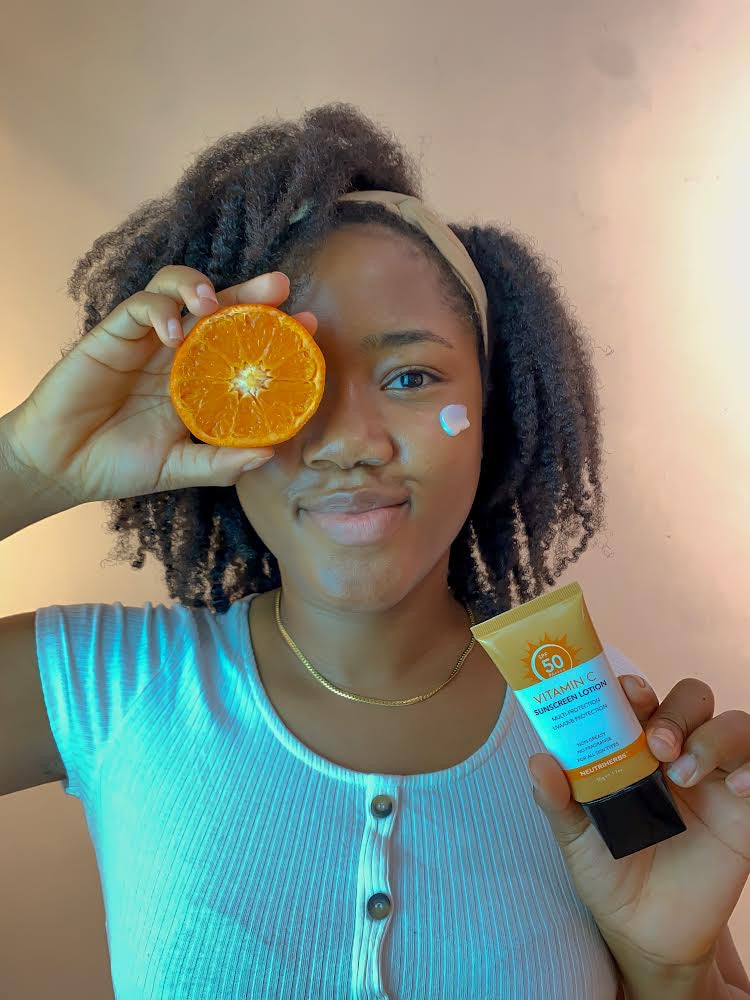As much as we say “black don’t crack” —African women are prone to uneven skin tone just like everyone else and retinols can be a nice way to keep everything really nice and glowy.
Among dermatologists and seasoned beauty experts, Retinol is worshipped as the holy grail of skin-care products.
In fact, some beauticians say it’s good for everything skincare - from acne, dark spots, wrinkles to even warding off skin cancer…and trust me I use it and retinol is that amazing.
Now here’s where it gets interesting.
Retinol is probably not like any random product you might have used before.
It’s a bit different and I will tell you just how unique it is in a minute.
But First Let's Talk About How Retinol Skincare Works And Why You Need It.
It’s all about cell turnover.
That’s the single biggest secret to young looking skin.
Yes! How fast/slow your skin cells turns over determines how healthy your skin looks.
So What Does It Mean For Skin Cell To Turnover?
In order to understand what cell turnover is all about —let’s kick it back to secondary school biology and break things down a bit further.
Every cell in our body has a life cycle, and in the case of adult skin cells, that cycle lasts around 28 – 60 days.
New skin cells are born in the deepest layer of your dermis, called the basal layer. As they mature, they move through the epidermis toward the skin’s surface. After spending awhile on the surface of your skin they lose their nuclei and become inactive, living cells and then clog together to form a thickened layer of dead cells that naturally sheds off over time.
When these old cells shed off, new ones rise to the surface to take their place. And when those plump baby skin cells gets to the top, it’s goodbye to dull skin and hello to a healthy, radiant complexion.
Now here’s where the gist gets even more juicy…
Our cell turnover rate changes throughout our life. Babies and young children have a faster cell turnover rate because they're growing quickly. That explains why little kids have such bright, soft, luminous-looking skin—their cell turnover rate is twice as fast as adults. They always have new skin cells on the surface.
Similarly, as we age, our skin never looks quite as "bright" as it did when we were younger because cells now take longer to regenerate causing drier, more wrinkled and acne-prone skin.
Hence, the simple secret to wrinkle free, acne free and youthful beautiful looking skin is in making cell turnover happen a little bit faster.
Here’s where Retinol comes in.

Retinol is the real gold standard anti aging ingredient
Unlike 95% of the products you use that just hang out on the surface of your skin, retinol actually digs in deep into the skin to exfoliate, reduce oil production, and immediately start turning your cells over very fast so as to clear up and prevent acne, reduce fine lines and hyperpigmentation for newer, smoother, fresher skin to shine through in about 4 to 12 weeks.
In fact, it’s so exciting such that, upon application, the ingredient in our Retinol cream binds to your DNA, and immediately begins directing the skin's proteins and enzymes to do certain things—the first of which is to cast off the piled-up dead cells from your skin's surface.
Then it starts normalizing that top layer—flattening it out to what it should be—might cause some water loss initially, which can make sensitive, normal and dry skins seem drier and more irritable," that’s why using a moisturizer alongside Retinol is recommended if your skin type falls under the aforementioned category.
When you first start using retinol chances are you’ll go through a cleansing process called “Retinization period” especially if you have a very sensitive skin...
This doesn't happen to everyone - just about 10-15% of users ever get to experience Retinization.
But even though you don’t have a sensitive skin or might never experience Retinization, it’s still a good idea to read about it and get to know more about how retinol skincare works.
About Retinization
Retinization starts a few days after you first start applying retinol and can last about a month (give or take two to four weeks) while your skin builds up tolerance for it.
During this period, your skin is getting used to the retinol and may get your face looking a bit darker, dry, flaky, reddish or with mild spots/pimples especially if you have sensitive skin.
When this happens please DO NOT freak out.
Don’t Stop using or abandon your retinol cream because this is completely normal for some.
While it might seem like a red flag it’s actually an early sign that the product is already getting to work and your skin cells are turning over at a high rate—this is all part of the process, and you need to stick with it in order to get to a point where your skin starts to clear.
Before you started using Retinol, you have to remember you already have skin concerns (pimples, acne) underneath the skin & waiting for their turn to mature & surface. They would have materialized into a pimple or acne or any other skin condition regardless.
Since we are talking about acne, here is a complete guide to getting rid of acne breakouts for clear skin that you might find useful.
What Retinol does is to accelerate skin cell turnover which could unfortunately cause a "temporal" uptick in breakouts. However, the key thing to note here, is that it’s not the product breaking you out but rather the process of increased cellular turnover.
The spots coming to the surface now would have come to the surface at some point anyway since complete cell cycle is approximately 4-8 weeks. Retinol simply sped that process up. So when you start using them for the first time, your cell turnover is disrupted, hence the spots that were brewing already suddenly appear earlier.
The key is not to stop the products. Keep pushing through, it’s a fairly short lived process and one that reaps rewards!
Patience is key. Well, patience and 6 derm-approved tips to make this adaptation period more bearable. Don’t give up too soon—those superhero results are just a few weeks away.
6 Simple Tips To Do To Prevent And Quickly Get Over Retinization
1) Don't apply Retinol Every Day At First
How much, when and where you apply it is crucial.
Unlike sunscreen, retinol isn’t something you should apply every day from the start. (Also, retinol is best applied at night before bed to avoid sun sensitivity.) You have to work your way up to regular use. “Start retinol slowly applying twice or thrice per week and then gradually adding another night until you have built up tolerance for daily use.
2) Don't use too many products at once in combination with retinol
No Mixing. No Combo.
I’ve heard some people say they want to mix retinol serum with their cream or they use this product or that alongside retinol. It’s not advisable.
Mixing or combining can cause irritation, inflammation and redness. Avoid this by using retinol at night alone and other stuff in the morning or totally stop the use of the other product.
3) Prepare your skin before starting Retinol
Apply a layer of moisturizer before you go in with the retinol. This provides a barrier between the ingredients and the skin without reducing the retinoids’ strength, and helps the product sink in slowly, decreasing the chance of irritation.
4) Less is More
Don’t over use it. Applying too much quantity or applying retinol too often won’t necessarily give you results faster.
Less is more, a little quantity can bring out a huge difference.
Apply just about 2 or 3 drops of retinol serum, while for the retinol cream just a pea sized amount is enough (press the plump down and use just the amount that comes out and that’d be enough).
5) Always Apply Sunscreen
Retinol would increase your sensitivity to the sun. That's why it's used at night so the sun doesn't break down it's power. It's advisable to use a broad spectrum sunscreen from spf 30+ to protect your skin and prevent hyperpigmentation due to sun exposure.
6) Once Again, don’t forget Retinol is not an everyday cream
It should be used ONLY at night and applied 2 to 3 times a week.
However, You can either gradually build up to daily use once your skin gets used to it or reduce weekly use if skin is getting a hard time adjusting.
As glamorous as retinol sounds, not everyone's skin would love it at the end of the day. If you're one of those wanting young looking skin that retinol promises but prefer a less harsh option or have a sensitive skin or breaks out like crazy when using retinol - You should consider switching to a collagen and peptides anti aging routine. it works and is effective and is friendly to everyone.
If acne is the issue for you, and it seems like retinol is making matters worse and you don't have the patience to see it through, then you should learn more how the powerful acne fighter called salicylic acid can benefit your acne prone skin.
Frequently Askes Questions About Retinization
A) Will I Experience Retinization?
Not everyone experiences side effects and, as with any topical product, there is no way to know how your skin will react to Retinol cream before you try it. Very few of our users with sensitive or dry skin experience retinization. However, in clinical studies, average side effects were less than mild. If you do experience retinization, remember that it is a normal part of the process for some few and it should subside after two to four weeks. Plus, there are steps you can take to help mitigate any discomfort.
B) How Long Does Retinization Last?
Retinization typically occurs early when you start your retinoid treatment, and side effects will lessen with ongoing use as your skin adjusts to the Retinol cream.
C) Should I Stop My Retinoid Treatment Because of Retinization?
Please don’t stop or freak out, in a matter of two weeks or so you’ll get your looks back but better, fresher, smoother. But if this persists then you might want to try Hemp products for acne-prone & sensitive skin
D) Is It Safe to Use Retinol Under the Eyes?
Yes!, but you should consider applying an eye gel if you want to treat dark circles, eye bags or wrinkles under eyes.
The eyelid skin is super super sensitive and very thin. The trick is if you're using retinol for eye care 1) use sparingly. (2) use 2-3 nights a week. (3) Combine with super hydrating moisturiser…eg, Neutriherbs Oxygen Aqua Hydrating Moisturizer 4) Always use sunscreen during the day 5) avoid other irritating eye creams. Not a miracle treatment, but it does work.


